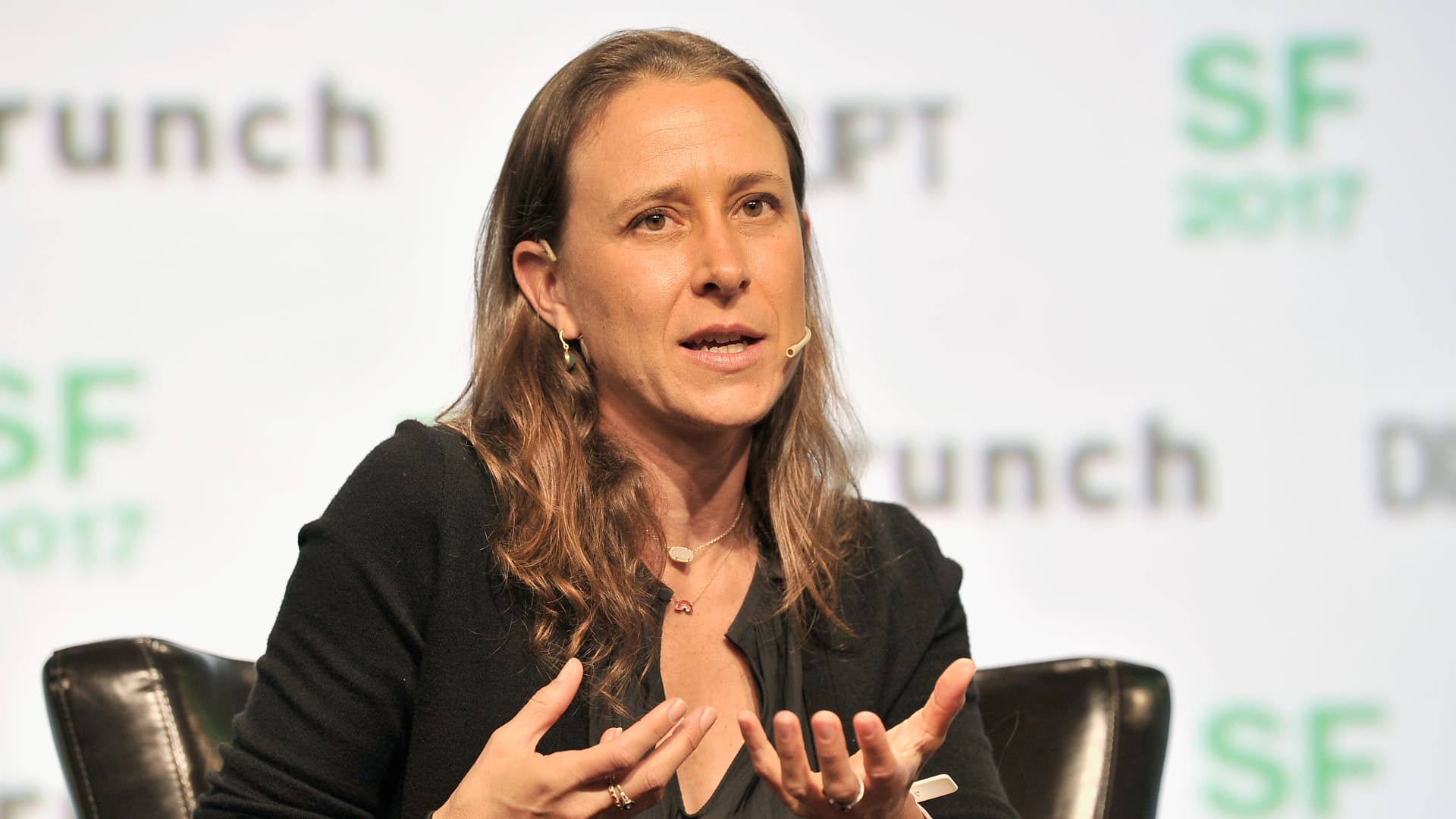
23andMe Co-Founder and CEO Anne Wojcicki speaks onstage during TechCrunch Disrupt SF 2017 at Pier 48 on September 19, 2017 in San Francisco, California.
Steve Jennings
Shares of the genetic testing company 23andMe sank 21% Thursday, a day after the company reported dismal third-quarter fiscal 2024 results and discussed splitting itself in two to help juice its stock price.
23andMe reported revenue of $45 million for the quarter, down from the $67 million it reported in the same period last year. The company said its net loss for the quarter was $278 million, which is steeper than the net loss of $92 million it reported in the year-ago quarter.
The stock was trading at around 56 cents on Thursday.
In November, 23andMe received a deficiency letter from the Nasdaq Listing Qualifications Department giving the company 180 days to bring its share price back above $1, according to a filing with the U.S. Securities and Exchange Commission. If 23andMe fails to comply, it will be delisted from the exchange.
During 23andMe’s quarterly call with investors, co-founder and CEO Anne Wojcicki said the company is considering splitting up its consumer and therapeutics businesses to help expand its investor base.
“We have not made any definitive decisions about what we are going to do, but there [are] definitely opportunities and things that we are exploring with potentially having therapeutics be independent versus consumer,” she said.
Founded in 2006, 23andMe exploded in popularity because of its at-home DNA testing kits that give consumers insights into their ancestry and genetic profiles. The five-time CNBC Disruptor 50 company went public in 2021 via a merger with a special purpose acquisition company, a deal that valued the company at around $3.5 billion.
Wojcicki, the former spouse of Google founder Sergey Brin, briefly reached billionaire status after the IPO, landing spots on Forbes’ “Power Women” and “America’s Self-Made Women” lists.
But 23andMe has struggled to generate steady recurring revenue since consumers only needed to take its DNA test once in order to receive their results. The company has launched additional therapeutics and research businesses, but its share price has tumbled more than 95% from its peak.
For its full fiscal year in 2024, 23andMe said it expects to report revenue between $215 million and $220 million, down from the $240 million to $250 million range the company guided last quarter.
23andMe is also facing mounting legal troubles as it faces more than 30 class action lawsuits following a data breach it disclosed late last year. Hackers accessed sensitive information like names, ancestry reports, birth years and more from up to 6.9 million individuals, a spokesperson confirmed to TechCrunch.
CFO Joe Selsavage said the company has incurred $2.7 million in expenses to date related to the data breach.
“We now require two-factor authentication from all of our customers, and we realized that our business really runs on the trust of our customers,” Selsavage said during the earnings call.
Analysts at Citi said the ongoing class action claims, as well as “persistent headline/reputational risk,” has made them cautious about 23andMe’s outlook, according to a note Thursday. They lowered their target price for the stock to 85 cents from 90 cents.





